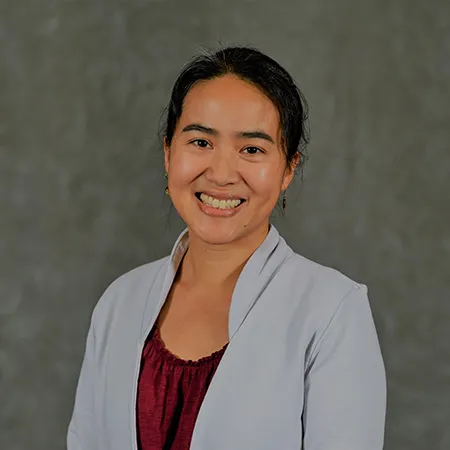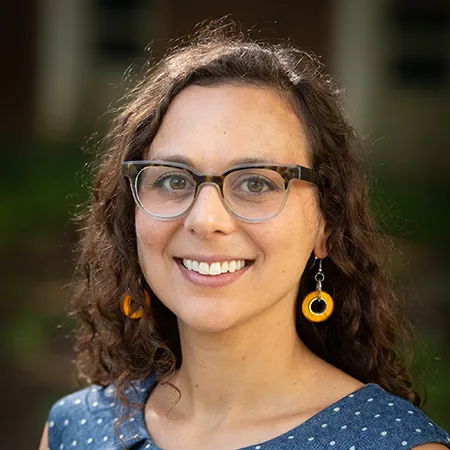All environmental problems are social problems, and so, studying them requires combining diverse types of data that represent relevant physical, ecological, and social factors. Combining these data allows one to ask if environmental patterns or processes influence social outcomes such as health, poverty, or political conflict. Social factors can also be drivers of environmental and social outcomes. For example, political conflict may lead to human migration and landscape degradation. In some cases, social and environmental data are both in quantitative forms, and thus, combining them in an analysis may use statistical techniques that many scholars are familiar with.
This short video provides such an example where diverse types of data—climatic, economic, educational, and household location—were combined to determine if climate variability, especially extreme events, has influenced educational attainment by Ethiopian children.
-
About the Presenters
Cynthia Wei
Associate Director of EducationDr. Cynthia Wei was the Associate Director of Education at SESYNC from 2016 to 2018 and previously the Assistant Director of Education and Outreach from 2012 to 2016. In this role, she led and managed educational programs including the SESYNC undergraduate research internship and the postdoctoral fellowship program (co-led), as well as initiatives to broaden participation with underrepresented minorities. She also created and taught an annual short course to advance the teaching of socio-environmental synthesis using the case study approach; this effort resulted in education-focused SESYNC...
Cynthia Wei
Associate Director of EducationDr. Cynthia Wei was the Associate Director of Education at SESYNC from 2016 to 2018 and previously the Assistant Director of Education and Outreach from 2012 to 2016. In this role, she led and managed educational programs including the SESYNC undergraduate research internship and the postdoctoral fellowship program (co-led), as well as initiatives to broaden participation with underrepresented minorities. She also created and taught an annual short course to advance the teaching of socio-environmental synthesis using the case study approach; this effort resulted in education-focused SESYNC workshops, multiple publications and presentations, and a virtual collection of open-access case studies on SESYNC’s website.
These efforts built on Cindy's past experience with national-level science education initiatives as an American Association for the Advancement of Science (AAAS) Science and Technology Policy Fellow at the National Science Foundation’s Division of Undergraduate Education, and as a Christine Mirzayan Fellow at the National Academy of Sciences. Her past scientific research involved animal cognition, having researched behavior and navigation in honeybees during her PhD and social cognition in corvids as a postdoctoral research associate.
Currently, Cindy is an Associate Professor of Teaching and Director of Science Education within the Science, Technology and International Affairs (STIA) program at Georgetown University’s Walsh School of Foreign Service (SFS). There, she leads the Science For All (SFA) program within the SFS and teaches several courses. She also has served as co-editor for the Ecology and Biodiversity section of the journal, Case Studies in the Environment. She holds a PhD in Ecology, Evolutionary Biology and Behavior, and Zoology from Michigan State University, and a BA in Biology (Neurobiology and Behavior) from Cornell University.
External Links:
https://gufaculty360.georgetown.edu/s/contact/0033600001kwDSvAAM/cynthia-wei
https://scholar.google.com/citations?user=_Nfjy9EAAAAJ&hl=en&oi=sraHeather Randell
Postdoctoral FellowDr. Heather Randell is a sociologist and demographer with interests in environmental change, sustainable development, and human health and well-being. Heather is currently an Assistant Professor of Rural Sociology and Demography at Penn State University, and prior to joining Penn State, she completed postdoctoral fellowships at SESYNC and the Maryland Institute for Applied Environmental Health at the University of Maryland. Heather uses quantitative and qualitative methods to understand the health and social impacts of climate change, as well as the linkages between hydropower development...
Heather Randell
Postdoctoral FellowDr. Heather Randell is a sociologist and demographer with interests in environmental change, sustainable development, and human health and well-being. Heather is currently an Assistant Professor of Rural Sociology and Demography at Penn State University, and prior to joining Penn State, she completed postdoctoral fellowships at SESYNC and the Maryland Institute for Applied Environmental Health at the University of Maryland. Heather uses quantitative and qualitative methods to understand the health and social impacts of climate change, as well as the linkages between hydropower development, migration, and well-being. This work is international in scope and has resulted in publications in journals including Proceedings of the National Academy of Sciences, Global Environmental Change, World Development, and Social Science & Medicine. Heather received a PhD in Sociology from Brown University, a Master of Environmental Management from Duke University, and a Bachelor of Science in Biology from Cornell University.
External Links:
https://www.heatherrandell.com

